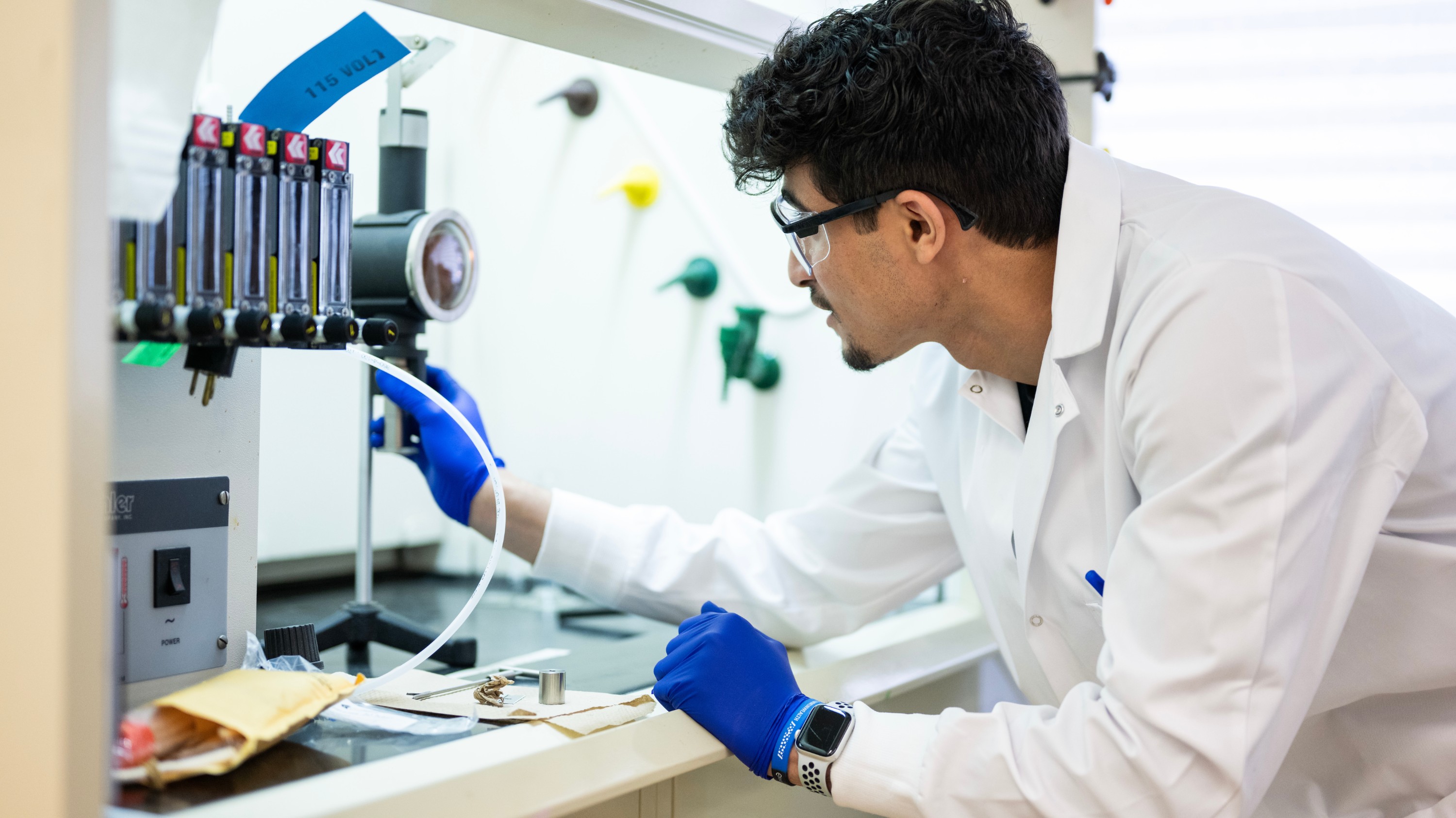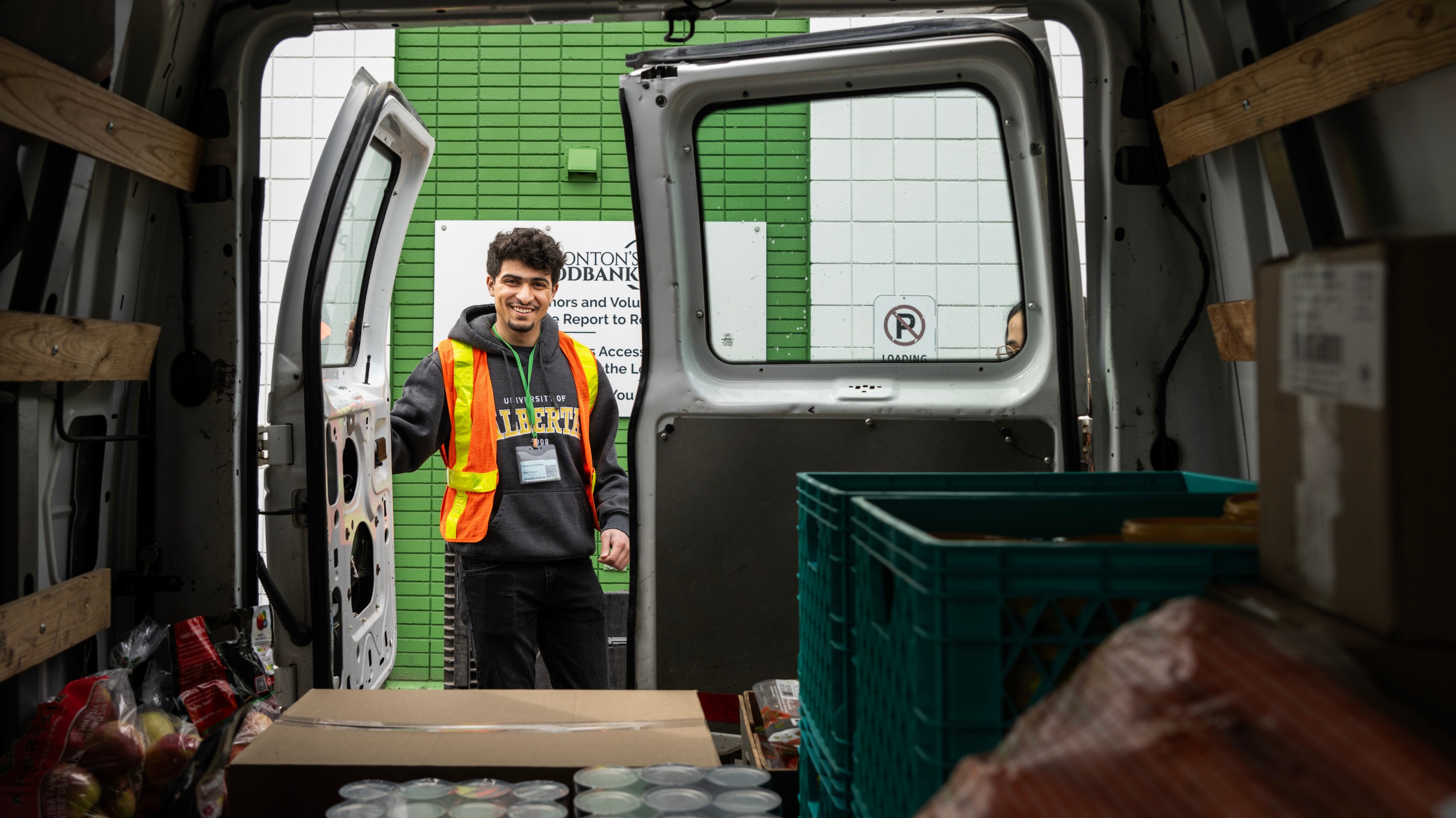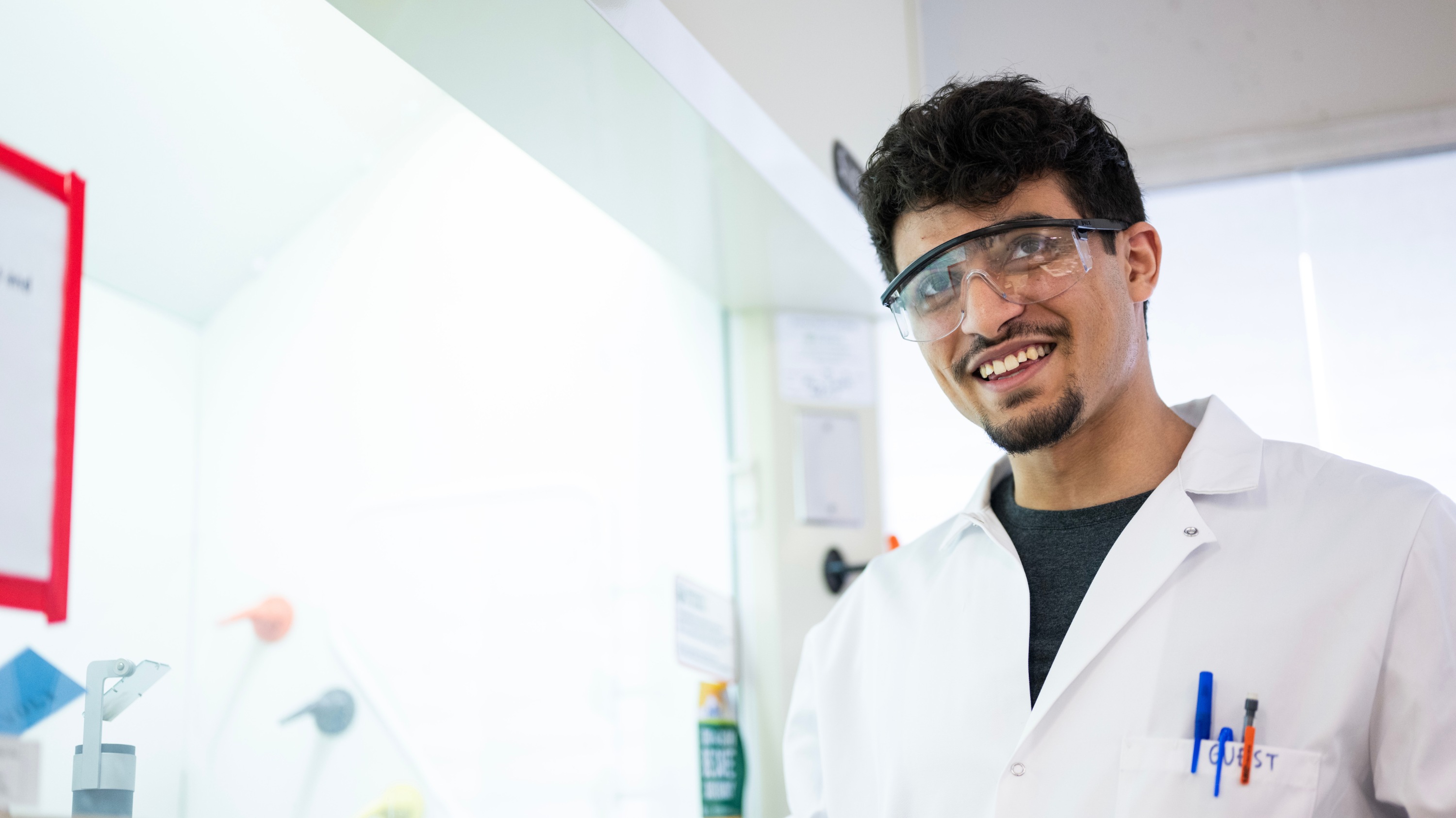As a child growing up in Libya, Zak Kaal lay awake one night after a guest speaker at his school described the possible consequences of climate change.
“I was scared, hearing about greenhouse gas emissions and how floods could start happening,” he says. “I was born and raised in a very oil-rich country, but I knew it wasn’t going to last forever and we needed to find better alternatives.”
That childhood fear and its accompanying determination to find a solution to global warming never left Kaal. It was “brewing in my mind” throughout high school, he says.
He went on to study environmental science in Malaysia, where he was introduced to a concept he’d never heard of: biofuels. “I was fascinated to learn there are a lot of fuels that can be made — even from plants — for transportation,” he says.
It was the aviation variety of biofuels that most intrigued him because of its potential to dramatically reduce carbon emissions. After graduating with his undergraduate degree, he looked around the world for a research program with the best chance of making a tangible difference in the aviation industry.
From Malaysia, David Bressler’s lab at the University of Alberta struck him as the best choice. Housed in the Faculty of Agricultural, Life & Environmental Sciences, Bressler’s group works with industry and government partners to convert waste lipids — fats and oils — into hydrocarbons used to produce biofuels.
Soon Kaal was on a plane to a destination 10,000 kilometres from his African home, full of high hopes for a master of science degree in a burgeoning field.
“I think the U of A definitely exceeded my expectations,” he says as he prepares to cross the convocation stage this week.
“We collaborated with industry partners and we forged connections with the people our research is going to benefit. I didn’t find that when I was looking at a lot of different universities — research here has real-world implications.”
Like most in their field, Bressler’s group is under pressure to produce results fast, says Kaal. The federal government is pushing for zero emissions in the aviation sector by 2030, and the only way to reach that goal is by converting to renewable fuel.
Since biojet fuel has to stay liquid down to at least -40 C, Kaal’s master’s project focused on adding a mineral catalyst to biofuel feedstock — derived from any kind of fat waste, including restaurant grease and off-grade canola oil — to make its molecular structure more complex, thus lowering its freezing point.
Kaal and his group were able to successfully lower the freezing point of their fuel to -50 C, well below the required limit.
“It’s looking good,” says Kaal. “Nothing is for sure yet, since it’s still at lab scale. But there are plans to test it in a pilot project.”

A crucial part of the group’s research is direct collaboration with industry, he says, which he believes produces faster results. “We learn from them, and they learn from us. They tell us what current issues they’re facing, and we try to help them out with a solution.”
Kaal keenly understands the importance of communicating research to the public, so to hone those skills he entered the Three Minute Thesis competition last year, where students present their research — elevator-pitch style — with a short explanation in common language.
For his presentation, called Green Skies Ahead: Sustainable Aviation Fuel from Waste, Kaal took home the Western Regional People’s Choice Award.
“I practised one of my first scripts on my friends, and they understood maybe 40 per cent of it,” he says. “I’d been so immersed in my field that I forgot that’s not how regular people talk.
“So I learned how to break down what my research means for the general public.”
Kaal was supported by a stipend during his master’s degree, adequate at first to cover expenses, but as inflation took its toll — especially on groceries — he was forced to use the Campus Food Bank to stock his pantry. He was surprised to find that many graduate students were in the same position.
“Everything is increasing in price, and stipends haven’t increased to match that. You’re given a fixed amount and you have to cut costs somewhere, so often students cut grocery costs — they end up eating less and skipping meals.”
To give back, Kaal has been volunteering at the Campus Food Bank for the past 10 months.

After graduating, Kaal hopes to work for the government at any level, helping drive policy on renewable energy. But he admits he’s torn between directing strategy and continuing his research on biofuels.
“I remember asking David (Bressler), ‘When can you say you’ve truly asked enough questions to graduate? Every time you ask one, there are always at least two more that appear.’ He told me I could always go on and do a PhD.”
“Zak is one of the strongest MSc students I have had the pleasure to supervise,” says Bressler.
“He was able to identify and develop catalysts with potential for upgrading renewable fuels into biojet fuel, and has been amongst the first to volunteer his time to support industry partners and collaborators with short-term experimental support.
“He is destined for great things ahead and will be a force on the global renewables sector — and hopefully on Alberta directly.”
